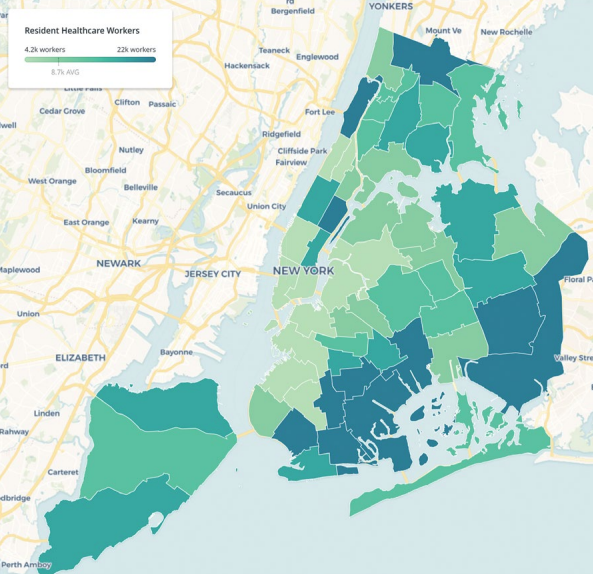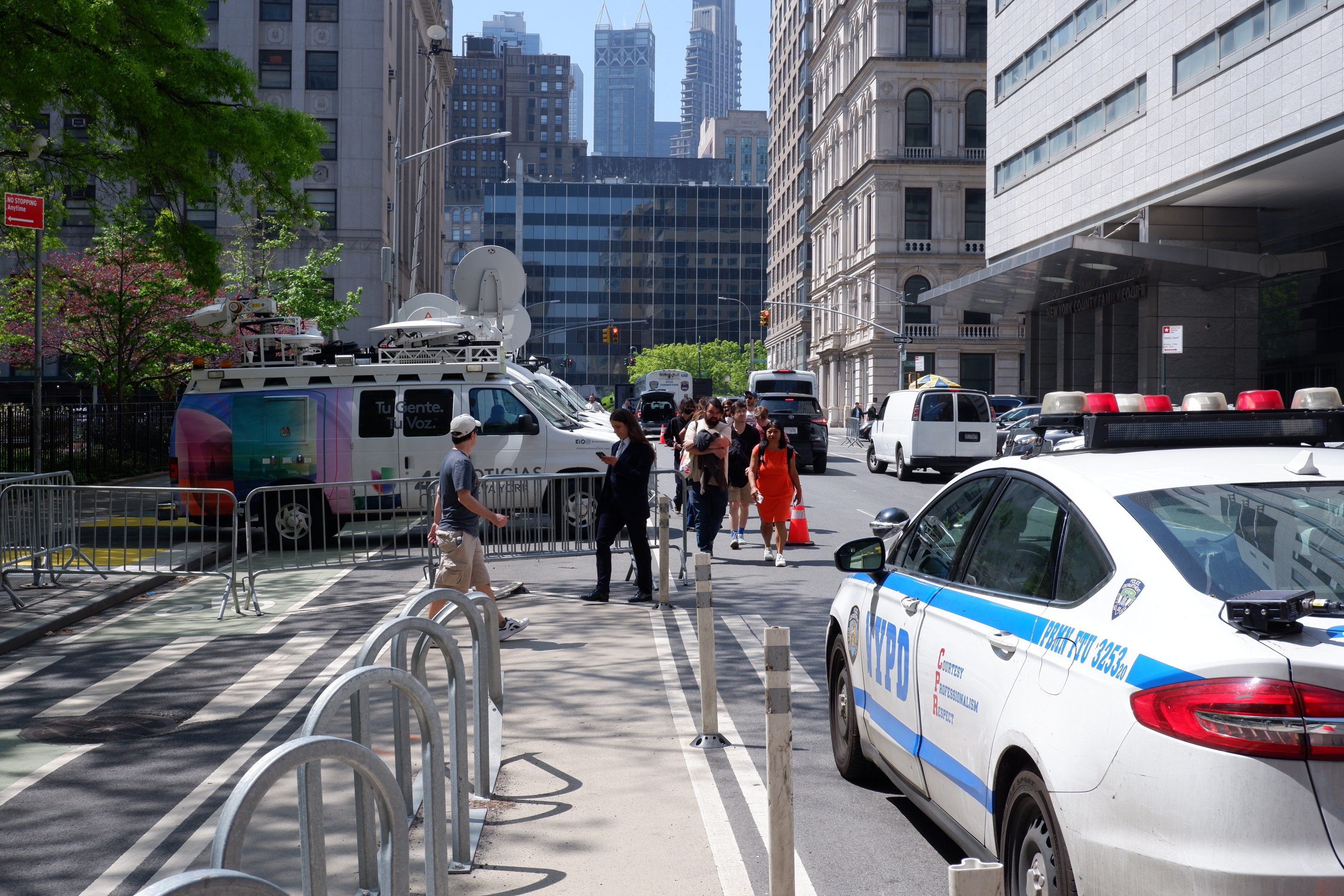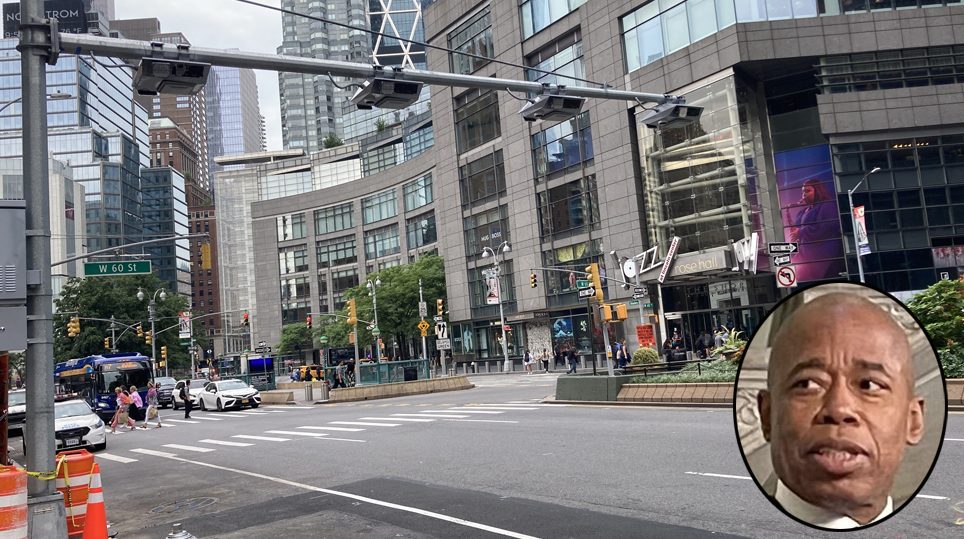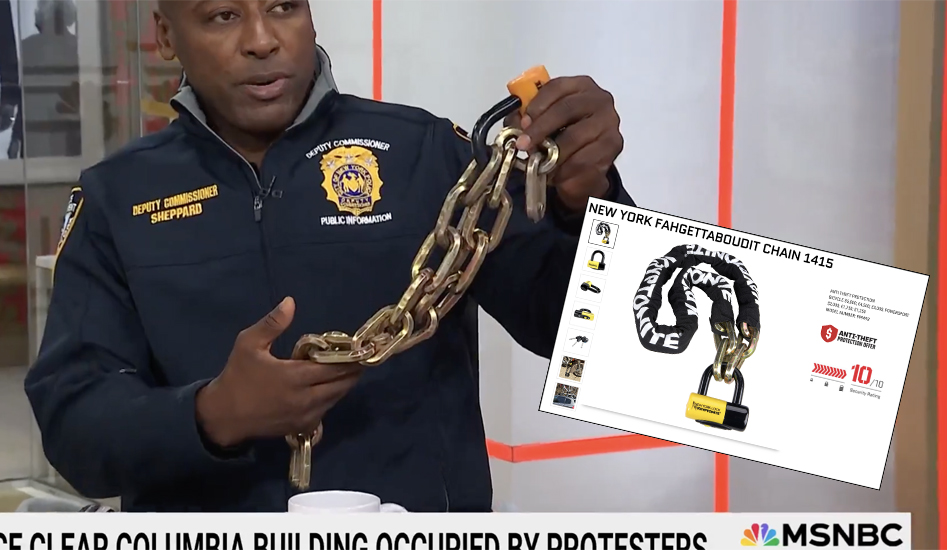Transit service in NYC is failing home health aides and other workers in the growing healthcare industry, according to a new report from the Center for an Urban Future [PDF].
Most healthcare workers live and work outside Manhattan. Their work trips don't fit well with the radial subway system, and car ownership is too expensive for many of them. They rely on slow, unreliable buses, and they have the longest commutes of any class of private sector workers in the city.
"While all New Yorkers have lots of reasons to be frustrated with their transit commute these days, no one has it worse than healthcare workers in New York City today," CUF Executive Director Jonathan Bowles said at a press event this morning.
Commutes for healthcare workers are getting longer. Almost two-thirds of New York's healthcare jobs are located outside of Manhattan, and the share is rising. There's especially rapid growth in home health work for patients living in far-flung corners of the city.
Workers also tend to live far from the New York's central neighborhoods, so their commutes often require complicated, multi-transfer bus trips.
In Brooklyn, for example, Canarsie and Flatlands are home to almost 18,000 healthcare workers, but there's only one subway station, and it's far from where most workers live. There's no direct subway trip to reach even a Brooklyn hospital like Bed-Stuy's Interfaith Medical Center, where 200 residents of those neighborhoods work.
While some healthcare workers commute by car, that's not an option for many of them. The average annual earnings of home health aides is just $25,000. Hospital employees who work 12-hour days are often too fatigued to drive.
Last year, an informal survey by 1199 SEIU, the union that represents the city's healthcare workers, found that transit was the number two source of stress for industry employees, behind only "the death of a family member."
"Too often, trains and buses are delayed, making workers late for work, and resulting in disciplinary action ranging from unpaid suspension to termination," said 1199 Secretary/Treasurer Maria Castaneda.
The CUF report endorses congestion pricing, both to speed up buses in Manhattan and to raise funds for other transit improvements. Most of the recommendations involve expanding and upgrading bus service, with a focus on creating better connections between areas where large numbers of healthcare workers live and work.
The improvements recommended by the Bus Turnaround Coalition would benefit healthcare workers in particular: citywide all-door boarding, more bus lanes, greater frequency, and a revamp of bus routes to align better with today's travel patterns.
"Since healthcare jobs are often located beyond the reach of the subway, fast and reliable bus service is one of the most important things that we can do to improve healthcare workers' commutes," said TransitCenter Deputy Executive Director Tabitha Decker. "The challenge of fixing New York City's buses is more political than technical. We already know what works."





